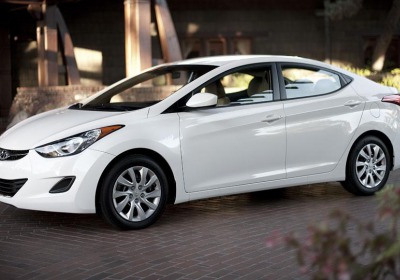Hyundai busted over performance claims before
Wed, 07 Nov 2012
It was revealed Nov. 2 that Hyundai Motor and its Kia Motors affiliate had overstated mpg ratings on 900,000 vehicles.
And it was not the first time Hyundai has been caught in its own false claims.
In 2002, Hyundai admitted that it had overstated horsepower ratings on 1.3 million vehicles. At the time Hyundai said it would make compensation payments of between $76 million and $127 million, while plaintiffs' lawyers projected the actual payout would be closer to $30 million.
Coincidence?
Consider this: Back in the 1990s, before Hyundai had a reputation for quality, it was selling a lot fewer vehicles, many of which were seen as wheezy donkeys. So the automaker banked on horsepower.
Hyundai vehicles suddenly found buckets of power in its wee engines, gaining 5 or 10 hp that hadn't existed before. The engines jumped to the head of their competitive classes. Horsepower became a key refrain in Hyundai advertising.
Then came the hammer. The EPA busted Hyundai for overstating horsepower on six vehicles spanning up to 11 model years. Ratings on some six-cylinder models were off by as much as 20 hp. Hyundai claimed the too-high numbers stemmed from improper testing procedures.
So, back to 2012.
Hyundai's recent fuel economy numbers have been questioned by journalists who tested their vehicles, including me. The mileage shortfalls were mentioned in articles, but writers typically attributed the shortfall to their own leaden feet rather than the cars.
When I tested an Elantra, which boasted 29 mpg city/40 mpg highway ratings, I eked out 25.2 mpg in a combined driving cycle. When I tested an Accent, with a 30/40 mpg claim, I got just 26 mpg.
I asked Hyundai executives about the discrepancy. They said that perhaps my test vehicles had bad engine-management settings, too-low tire pressure or something to that effect.
I pursued my query further, asking whether it is possible to game the EPA testing system, to create engine software settings to perfectly match the EPA driving cycle to obtain maximum fuel-efficiency scores.
Of course, when you were not driving exactly to that measurement, fuel economy would likely fall off, I posited. Hyundai's response: It was no different from anyone else in the fuel economy competition.
Now that the EPA has made the shortfall official, Hyundai is claiming an error in--you guessed it--testing methods in South Korea.
That an automaker with two distinct brands could mistakenly test 13 model lines, with several chief engineers running the programs, over a period of years seems like a reach.
But that's Hyundai's story, and Hyundai's sticking to it. Again.
Mark Rechtin is West Coast editor forAutomotive News, a sister publication to Autoweek.
By Mark Rechtin

